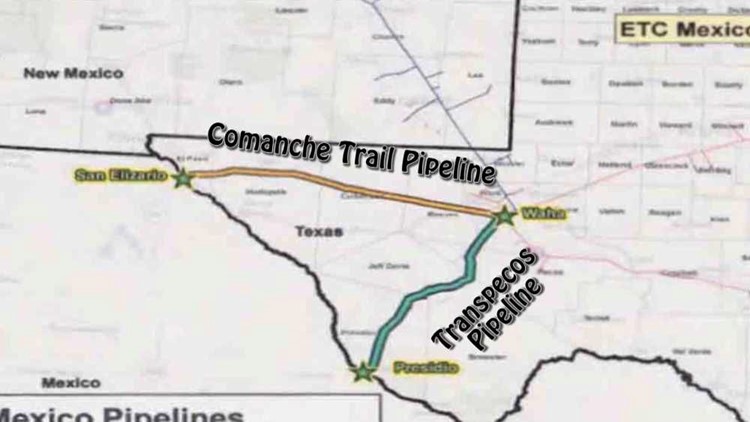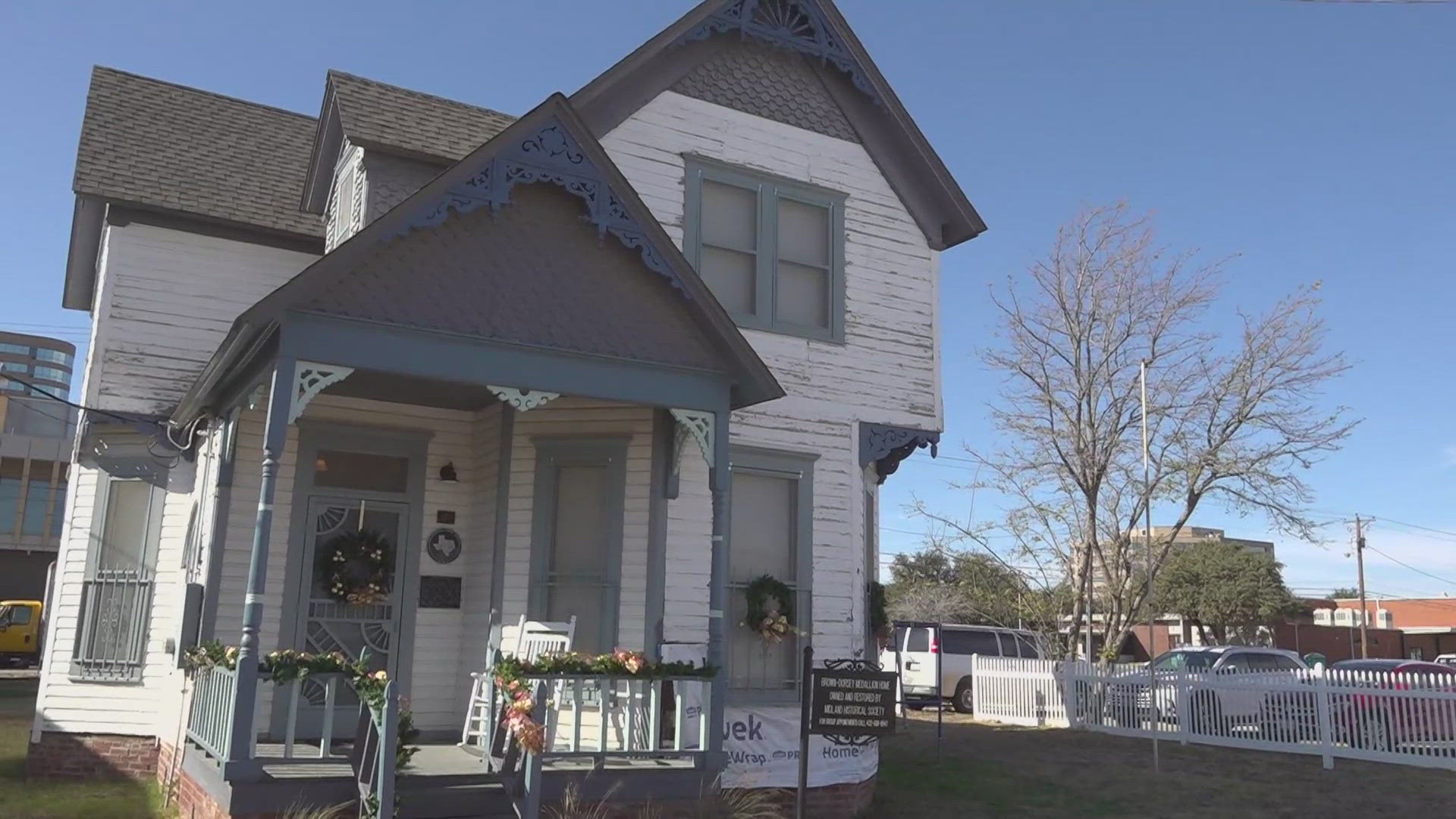
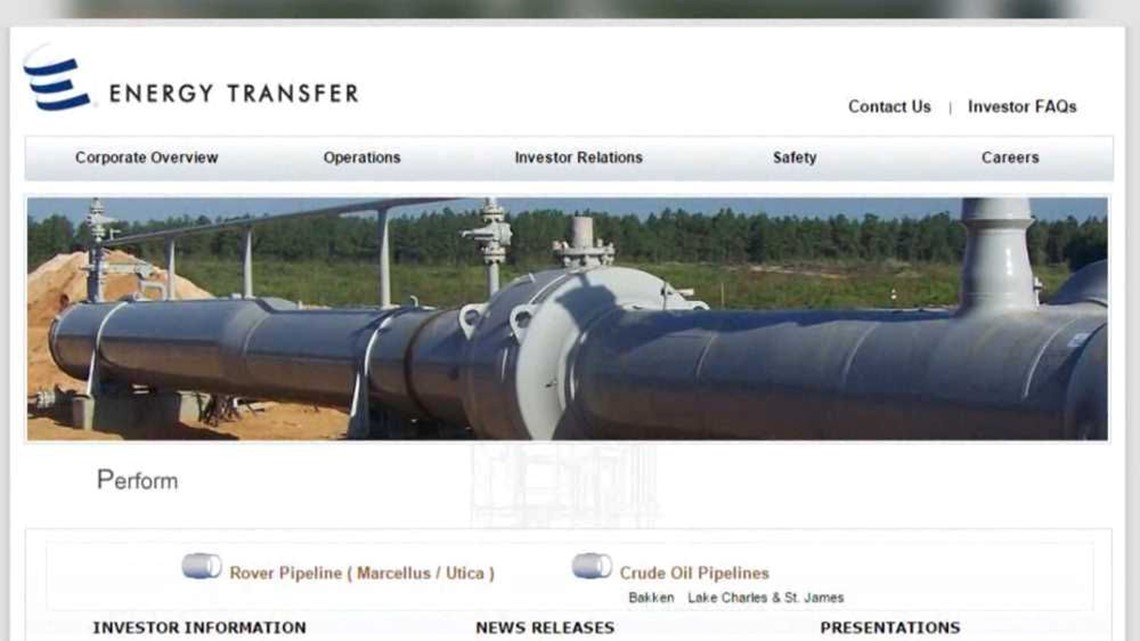

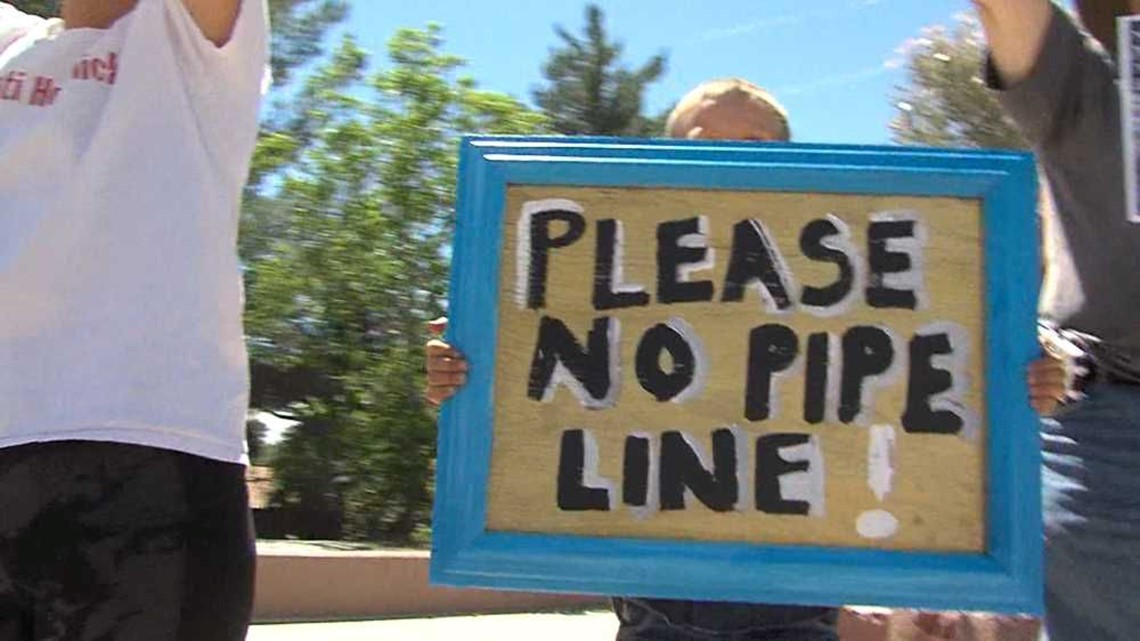

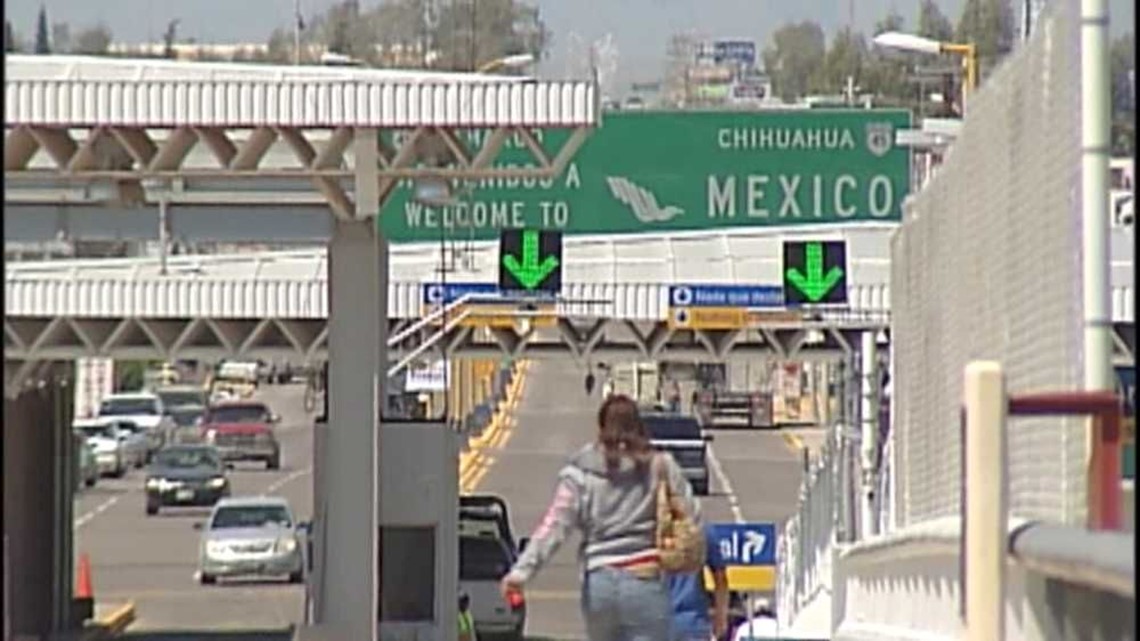

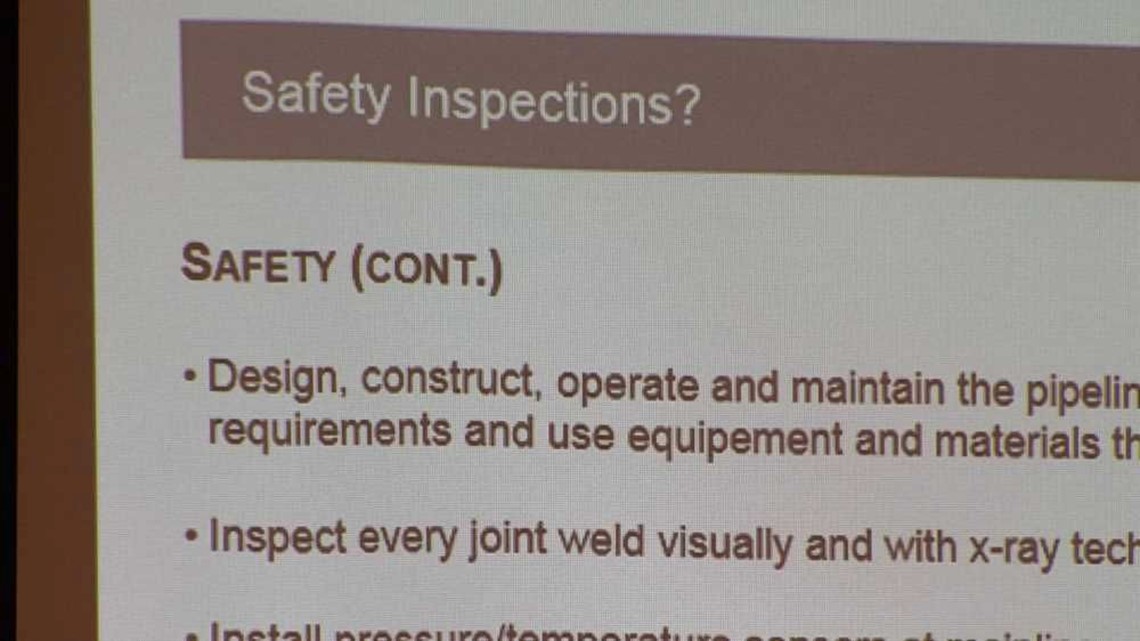
As NewsWest 9 has been reporting, two natural gas pipelines are headed for West Texas.
Last week, at a town hall meeting in Alpine, representatives from the pipeline initiative were met with both support and resistance.
Despite countless meetings, unanswered questions linger in the minds of residents who live along the path of the pipelines.
ETP says they have centralized control centers in San Antonio and Houston with the ability to shut down valves in less than a minute in the event of an emergency.
"President Obama and the former President of Mexico Calderón enacted a bilateral agreement and both of those sides agreed to protect the Big Bend region, so we're calling on President Obama to make good on his promise," said Belle Peña, Media Liaison for the Big Bend Conservation Alliance.
Here's where the project stands now.
ETP has surveyed 111 of the 143 miles of the Trans Pecos Pipeline, with success in 90% of cases to negotiate easements with landowners. More data will be collected to see if an alternate route is necessary.
Once the company lands a Presidential Permit and the easements along the route, construction will begin.
Here's how it will work.
"The communities will start seeing some of the pipeline being moved into what we call 'staging areas', then they'll start clearing the right-of-way," Vicki Anderson Granado of the Granado Communications Group and Media Relations for Energy Transfer Partners, said.
After the right-of-ways are cleared, trenches follow. The pipeline will be strung along the route so that welding can begin. The pipeline will then be buried underground and the restoration phase will begin.
"It is Energy Transfer's commitment that the environment, the areas along the right-of-way, each landowner we will work with to make sure that we can take their property back to the way it was or better," said Granado.
ETP says all welds will be tested, and no lights will be installed on the right-of-way.
During construction, no public roads will be closed and they will not work during the night.
One compression station will be placed at the Waha Hub, and ETP is working with McDonald Observatory to protect the dark skies region.
ETP explains that both the State of Texas Railroad Commission and the federal government will oversee the project.
"From the Army Corps of Engineers, to the Fish and Wildlife, to historical commissions, to all sorts of federal," said Granado.
"Putting in a pipeline like this would destroy the natural flow of life force energy in this area. Nothing would be the same here," said William Hoff, Chief of the Walelu Township Tsalagiyi Nvdagi Tribe, and resident of Valentine.
Proponents say the free taps on the pipeline will bring in more business. For example, the pipeline through Presidio County was tapped by a chile roasting factory, but they're missing one ingredient. Natural gas.
"There are some existing businesses and probably even others in the community who would just like to tap into natural gas. To have more affordable fuel for cooking and things like that," said John Ferguson, Mayor of Presidio.
Jobs are scarce in the community, too. The Presidio Municipal Development District requested a job fair in their town hall meeting Tuesday, which was granted by ETP.
Across the border in Ojinaga, city leaders say this change coincides with their country's plan on energy reform.
"Natural gas is one of the most economical choices, and wherever these pipelines run, it in turn creates a high level of industrialization," said Miguel Carreon Rohana, Mayor of Ojinaga, Mexico.
This will create close to 1,500 jobs, saving money in the process.
"This can save a considerable amount of electricity because the thermoelectrics will work in a combined cycle, which also saves a bunch of money on the cost of electricity," said Rohana.
Some county and city leaders along the path of the Comanche Trail Pipeline project significant economical benefits.
"I don't anticipate much of a negative impact. It will help us considerably, I think, on our ad valorem taxes. We have a very small tax base, so I can't say I'm opposed to it...Only to see where the finalized map lies and what the population close by would be. That would be my main concern," said Mike Doyal, Judge of Hudspeth County.
"This is more income into the community. It will help the counties that are affected with the pipeline. It will help the school districts, it can help the cities and it can help hospital districts. It can just be a very positive thing," said Venetta Seals, Mayor of Pecos.
Given the controversy and the concerns about safety, can this project be stopped?
"We certainly see through the surveys and the different groups that we are in discussions with, we'd like to make sure in our routing and everything that we do whatever we can to work with everybody in the surrounding areas. But we don't see anything at this point that would make a change to the project," said Granado.
Construction is expected to begin later this year or early 2016.


